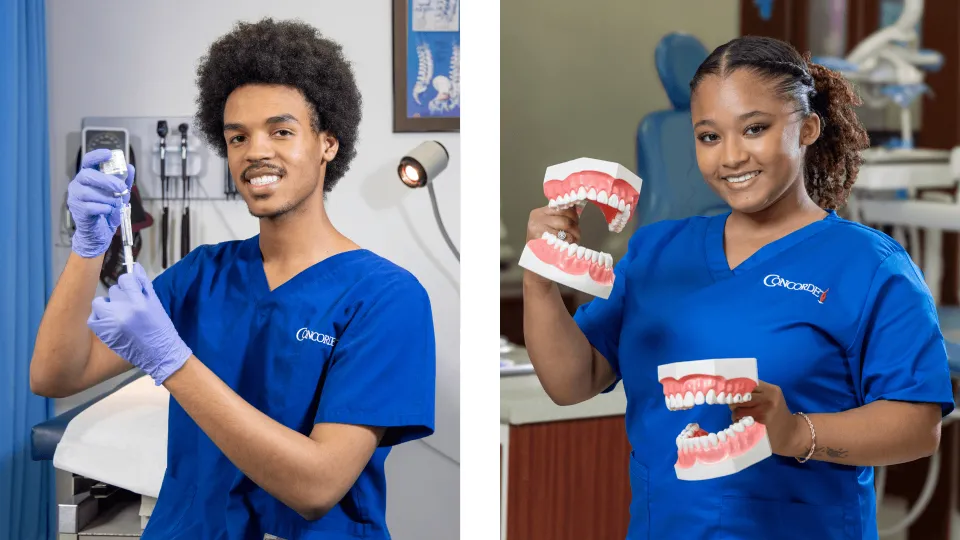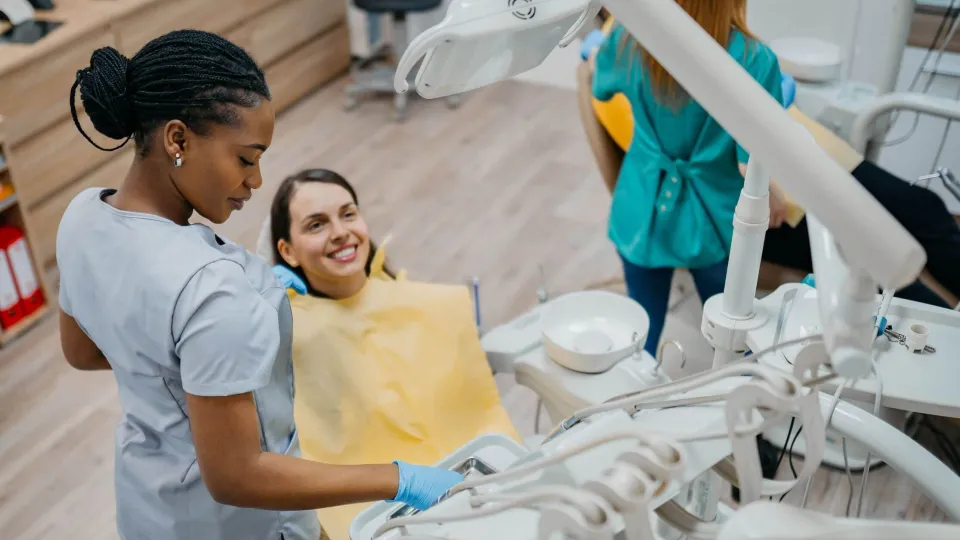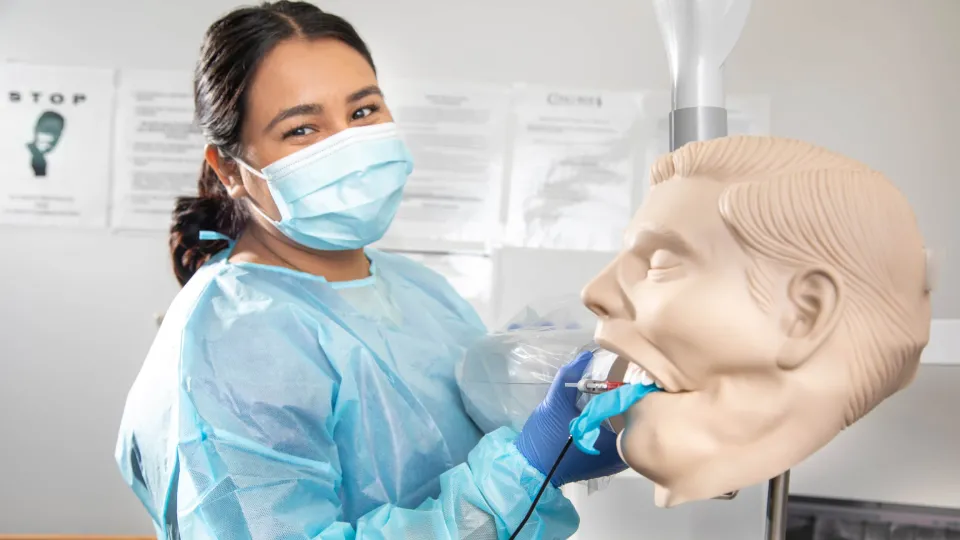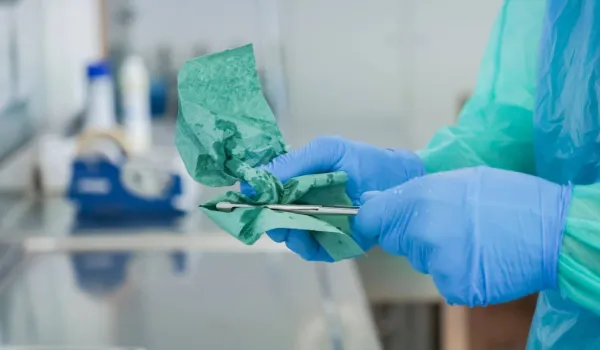
Are you interested in a career in dental assisting but want to know more about the field before you commit to something long term? Sounds reasonable. Read on to find out what a career in dental assisting looks like as well as salary averages, certification/licensure requirements and the basics of dental assisting training.
What do dental assistants do?
Dental assistants have many tasks, ranging from providing patient care and taking X-rays to recordkeeping and scheduling appointments. Their duties vary by state and by the dental offices where they work. Some of their tasks may include:
- Scheduling appointments for patients
- Maintaining patient records
- Assisting dentists with procedures
- Processing X-rays
- Sterilizing dental equipment
- Instructing patients on proper dental hygiene
What is the work environment like?
Dental assistants may work with dental hygienists and/or dental laboratory technicians. They work in private dental offices, dental schools, hospitals, clinics, and public health settings. Job duties and career settings in this field may vary, but work environments are engaging as you are able to interact with both patients and coworkers.
On a typical day, a dental assistant who performs laboratory duties may:
- Make casts of the teeth and mouth from impressions
- Clean and polish removable appliances
- Make temporary crowns
On a typical day, a dental assistant who performs office duties may:
- Schedule and confirm appointments
- Receive patients
- Keep treatment records
- Send bills and receive payments
- Order supplies and materials
Career outlook and annual salary
According to the Bureau of Labor Statistics, employment for dental assistants is expected to grow 25% from 2012 to 2022.* Because of ongoing research that links oral health to overall general health, the demand for preventive dental services will continue to grow.
In May 2012, the median annual wage for dental assistants was $34,500. However, salaries vary depending on your region.
What do you learn during dental assistant training?
Throughout dental assisting training, you can have the opportunity to learn varied tasks, including:
- Vital sign checks
- CPR
- Instrument sterilization and prep
- Oral inspections
- X-rays
- Fluoride treatments
- Patient education
- Scheduling
- Patient charts
- Records and supply maintenance
- Accounts payable and fee collections
- Insurance forms
What licensing or certifications are required?
Dental assistant certifications and licensing vary by state. Most states restrict the procedures a dental assistant can perform, and some require dental assistants to graduate from a dental assisting program and pass a licensing exam. Professional certification is also available through the Dental Assisting National Board and is recognized in most states.
*www.bls.gov/ooh/Healthcare/Dental-assistants.htm
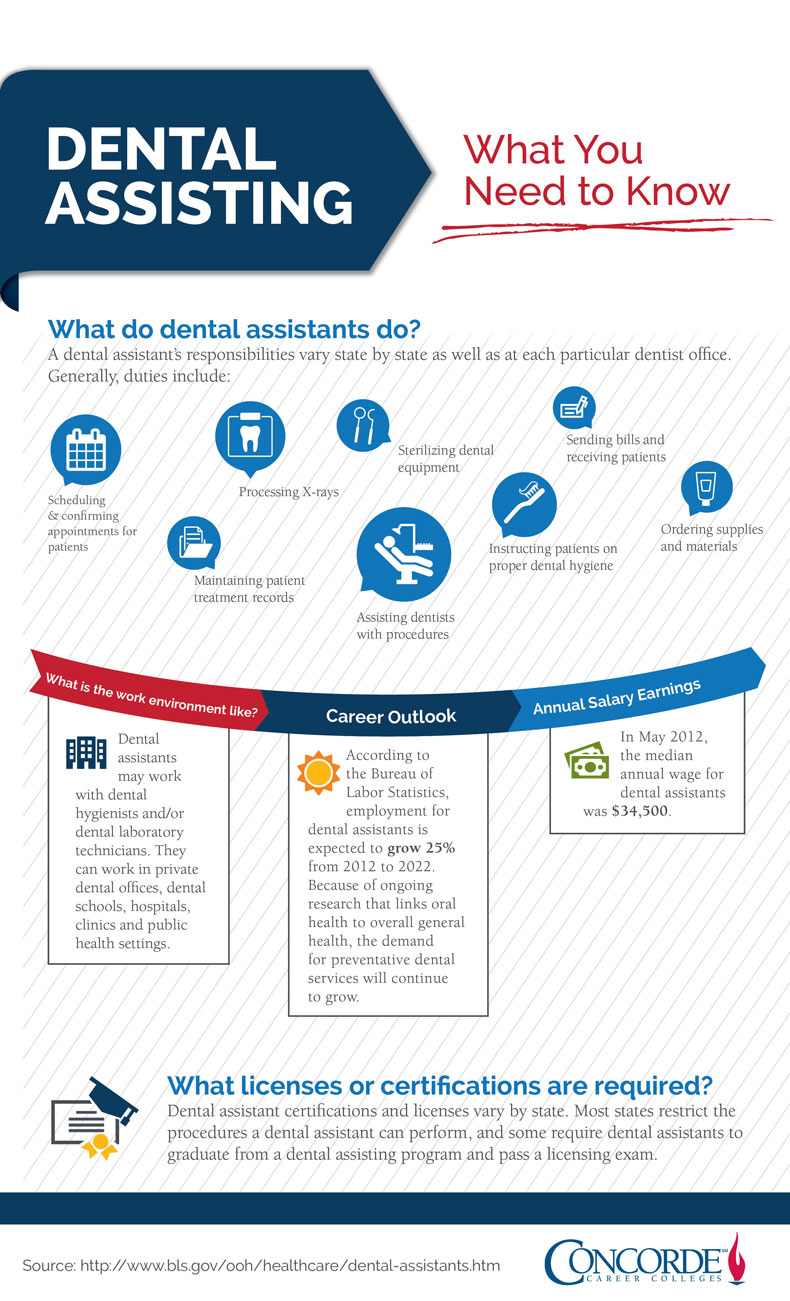
Take The Next Step Towards a Brighter Future
Interested in learning more about our Dental Assistant program?
We have a Concorde representative ready to talk about what matters most to you. Get answers about start dates, curriculum, financial aid, scholarships and more!

